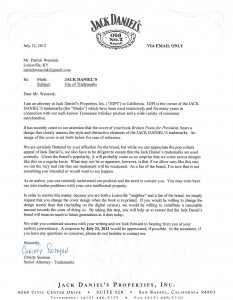Interesting post on the Wellington Financial Blog about “Wikiality” – the practice of taking stuff in Wikipedia as the truth, or, to quote: ““a reality where, if enough people agree with a notion, it becomes the truth.”
JN notes that Wikipedia has been cited by the courts, and this is reason for concern. A snippet:
The practice poses two problems:
- The references may be inaccurate; and
- Even if accurate, the references are subject to change at any point in the future, making it difficult for any future decisions to refer back to the original or understand the context in which it was made.
Given recent reports of Microsoft offering to pay individuals to make changes to certain Wikipedia articles in which they have a vested interest, the credibility of the site as a definitive reference source again comes into question.
A few of my colleagues at the firm also expressed bemusement when a recent case in Ontario (don’t have the citation, sorry) also cited Wikipedia.
I am quite a big fan of Wikipedia. It is, I think a rather useful and handy tool to refer to from time to time. Do I take it as the gospel? No. Would I use it if I were trying to concoct an antidote for a poison that was about to kill me? Probably not. Would I cite it in a legal research paper? Possibly. In fact, quite likely.
Although Wikipedia is by no means without its weaknesses, it also has its strengths. Sure, there is a possibility of inaccuracy. But then again, isn’t something less likely to have inaccuracies if it is reviewed (and edited) by more eyes (and more minds)? Isn’t it more likely that if there is a dispute about what is and isn’t correct, it will come to light, just like the Microsoft incident?
And what source, can it be said, is free of inaccuracies? Certainly not The New York Times. Although the Gray Lady is quick to point out that it was “deceived” by an errant reporter, it is less quick to reflect on the fact that it published fabricated stories. That of course is the clearest example, but history is rife with examples of inaccurate or misleading stories in the press. Less clear, of course, is media bias. And one only needs to refer to Manufacturing Consent. I don’t necessarily agree with all that book has to offer, but it certainly provides some food for thought.
What about scientific publications? Hmmm. Well. Again, truth is quite often relative. The clearest examples, are, of course, outright fabrication. Nonetheless, Dr. Hwang Woo-suk’s paper on producting the first cloned stem cell line was considered the truth for several years, until he was discredited. And more generally speaking, is it not true that, in the world of science, what is considered to be the truth is what most scientists believe to be true? Is that not the system of peer review? A great read on this topic is The Structure of Scientific Revolutions (as an aside, its also the book that introduced the phrase “paradigm shift” into popular parlance). I won’t bore you with details, but suffice it to say that, at the end of the day, science, at least in concept, may not be that far from wikiality.
My point isn’t necessarily to skewer existing sources of “truth” but rather to point out that such sources aren’t necessarily more reliable or accurate, or less fallible, than something like Wikipedia.
And as for things changing? Make a copy.

